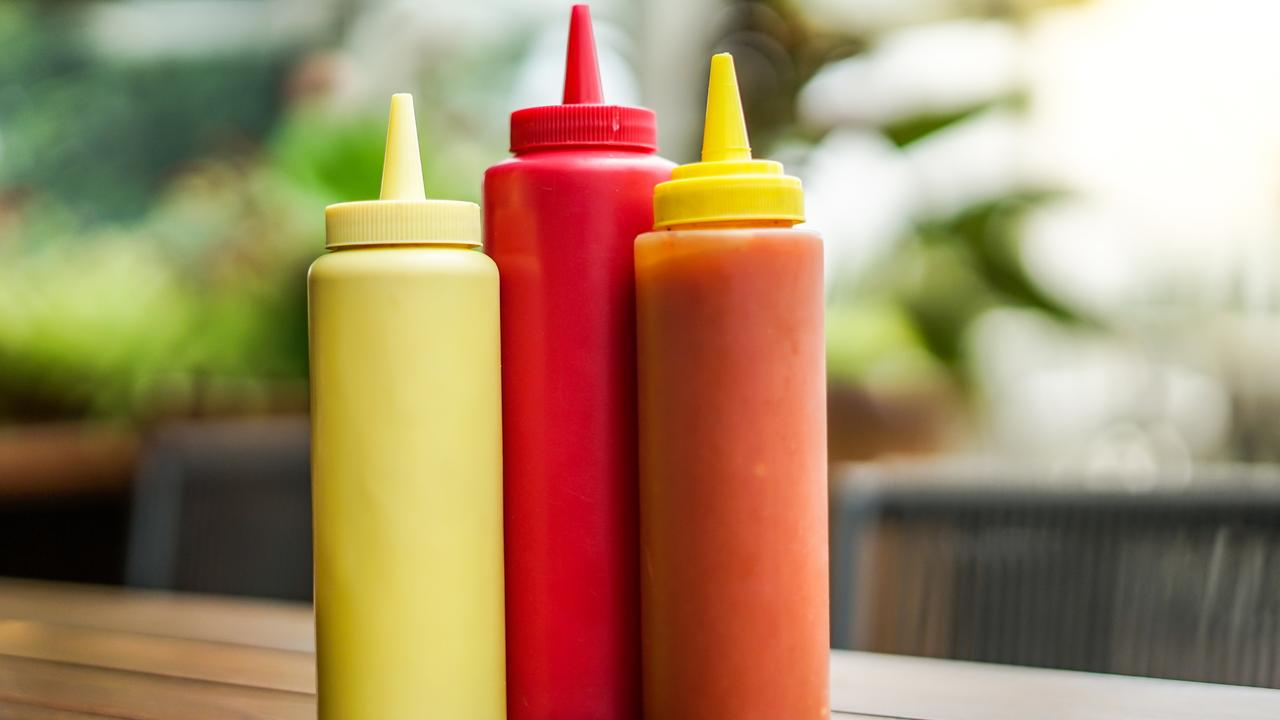Doctor settles whether you should keep tomato sauce in the pantry or fridge
It’s an age old debate that divides Aussies: should tomato sauce, Vegemite and jam be kept in the pantry or fridge? We finally have the answer.

Welcome to Ask Doctor Zac, a weekly column from news.com.au. This week, Dr Zac Turner talks about tomato sauce.
Question: Hi Dr Zac, my partner and I constantly fight over whether tomato sauce, Vegemite, raspberry jam and peanut butter live in the fridge, or pantry.
I personally think all condiments and spreads need to be kept in the fridge because it keeps them fresh, whereas my ignorant boyfriend likes them all to be room temperature because he cries like a baby stating that cold vegemite makes his toast cold. Sook!
He reckons the salt, vinegar or sugar acts as natural preservatives in these spreads.
Can you please settle the debate once and for all: Do sauces and spreads need to be refrigerated or not? – Jo, 27, Perth
Answer: The fridge or pantry debate has certainly divided and broken households across Australia for decades.
There are two ways to look at this debate. One way is to be a reasonable human being and accept that we all have preferences and that’s just OK. The other way is to be like most people and take a shallow attitude and demand to know which way is correct.
Jo, I hope you are sitting down for this, because I’m afraid to tell you that tomato sauce, Vegemite and peanut butter do not need to be refrigerated.
I understand you will be demanding reasons right now, so I’ll give them to you. Let’s start with tomato sauce.
Tomato sauce and other similar condiments such as BBQ sauce and mustard, do not need to be refrigerated due to its high acidity and processing. Even after it’s been opened, it remains microbially stable for quite some time, which means little bacteria grows in it.

Both Vegemite and peanut butter don’t contain much water, so it’s harder for bacteria to grow. Both spreads are shelf-stable products, which means they can remain on the shelf before and after opening.
Can I just say that you can find out all this information by reading the labels of your food; it is here that you will find storage directions. It’s always best to follow what your food label says.
I think this debate paints a great picture of the greater misconceptions most people have with food storage, handling and cooking.
Every time I see a patient who has food poisoning they always say the same thing: “I can’t believe this has happened to me.” I’m always telling them the same thing, which is: “I can!”
Food poisoning occurs when food is contaminated with bacteria during storage, handling or cooking. Sometimes contaminated food may even look, smell and taste normal. These nasty bacterias include Salmonella, Campylobacter, Listeria, Norovirus or Rotavirus, and E.Coli.
Food storage is particularly dangerous as if it is done incorrectly bacteria can multiply to dangerous levels. Food poisoning bacteria grows and multiplies the fastest in the temperature zone of 5 degrees Celsius and 60 degrees Celsius. Ensuring your refrigerator stays below this is important to keep potential pathogen growth reduced.
There are high risk foods which you need to exercise a level of caution with. If you’re gut is telling you to not eat it, you should listen to it! These high risk foods include raw and cooked meat, dairy products, eggs, seafood, and ready to eat foods.
Got a question:
askdrzac@conciergedoctors.com.au
Dr Zac Turner has a Bachelor of Medicine and Bachelor of Surgery from the University of Sydney. He is both a medical practitioner and a co-owner of telehealth service, Concierge Doctors. He was also a registered nurse and is also a qualified and experienced biomedical scientist along with being a PhD Candidate in Biomedical Engineering.






